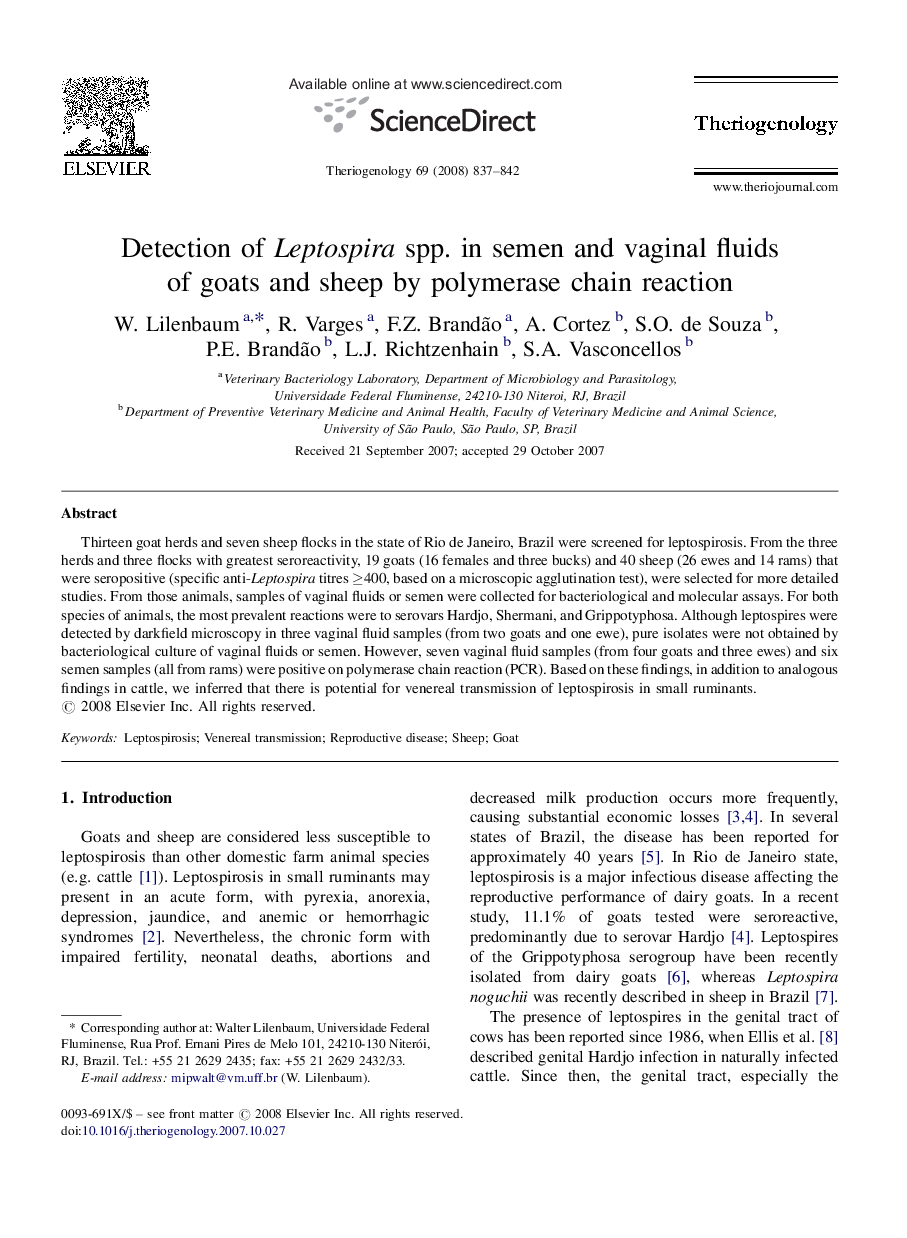| Article ID | Journal | Published Year | Pages | File Type |
|---|---|---|---|---|
| 2095950 | Theriogenology | 2008 | 6 Pages |
Thirteen goat herds and seven sheep flocks in the state of Rio de Janeiro, Brazil were screened for leptospirosis. From the three herds and three flocks with greatest seroreactivity, 19 goats (16 females and three bucks) and 40 sheep (26 ewes and 14 rams) that were seropositive (specific anti-Leptospira titres ≥400, based on a microscopic agglutination test), were selected for more detailed studies. From those animals, samples of vaginal fluids or semen were collected for bacteriological and molecular assays. For both species of animals, the most prevalent reactions were to serovars Hardjo, Shermani, and Grippotyphosa. Although leptospires were detected by darkfield microscopy in three vaginal fluid samples (from two goats and one ewe), pure isolates were not obtained by bacteriological culture of vaginal fluids or semen. However, seven vaginal fluid samples (from four goats and three ewes) and six semen samples (all from rams) were positive on polymerase chain reaction (PCR). Based on these findings, in addition to analogous findings in cattle, we inferred that there is potential for venereal transmission of leptospirosis in small ruminants.
